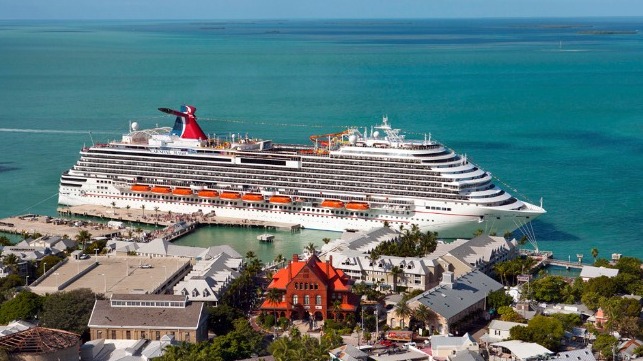Florida Lawmakers Advance Bill Blocking Key West Cruise Ban

Florida’s proposed legislation which would block local governments from making rules to restrict activity at the state’s port took a step forward on Wednesday as the state legislature begins its spring session. Largely seen as a response to Key West’s vote to restrict cruise ship access, the proposed legislation says that the authority to restrict commerce at the ports rests only with the state or federal government and not the local municipalities.
As introduced by Senator Jim Boyd, a Republican representing the city of Bradenton, Florida on the southwest coast of the state, the legislation would have covered all 15 seaports in the state. The proposed legislation prohibits local governments from restricting or regulating commerce, the size, and types of vessels, the source or type of cargo, or the number, origin, or nationality of passengers. It would also be retroactive in order to block the November 2020 referendums which Key West voters approved to limit the size of cruise ships and the number of people landing each day in their port.
Florida’s House Tourism, Infrastructure & Energy Subcommittee held hearings this week to consider the proposed bill. Among the objections raised was the broad sweeping nature to cover all ports as well as the preemptive nature of the legislation.
The legislators reached a compromise that limits the bill to block local regulations at the municipal-run ports in Pensacola, Panama City, Key West, and St. Petersburg. By narrowing the bill, the Florida Association of Counties withdrew its opposition as did republican lawmakers. The subcommittee voted 12-6 to approve the revised measure.
Proponents argued that that permitting local authorities to set individual policies for their local ports could interfere with the state’s commerce, the flow of goods in and out of the state, and the public’s health, safety, and welfare. Further, they contend, since ports serve as hubs for inter-state commerce, local authorities do not have the authority to take actions that would impact the flow of inter-state trade.
"If you don't pass this bill and you allow individual municipalities to suddenly close their ports to any type, size, or nationality of people that they deem fit, you're going to abrogate a lot of contracts," said the bill's sponsor, Rep. Spencer Roach, a Republican representing Ft. Myers on the west coast of Florida.
In addition to the argument that the bill is a veiled attempt to override Key West’s voters, the opposition focused on the local authorities’ ability to take actions to protect their communities. The Port of Pensacola, for example, highlighted that it restricts the types of cargo arriving in the port because of the port’s central local in the city and the potential for significant damage if, for example, a flammable cargo were to be mishandled in the port.
Key West officials are continuing to work to determine the scope of last November’s referendums. At issue was if it applied to the three piers in the port or if it would only cover the one pier managed by the city. Separately, this week, Key West’s commissioners voted to postpone accepting a state grant for repairs and maintenance on the city-run dock. They cited the problem of accepting state money for the pier while they were also arguing that the state had no authority over limits placed on the use of the pier.
The amended bill now heads to the state’s Commerce Committee for another hearing before it comes up for a vote in the full legislature.
